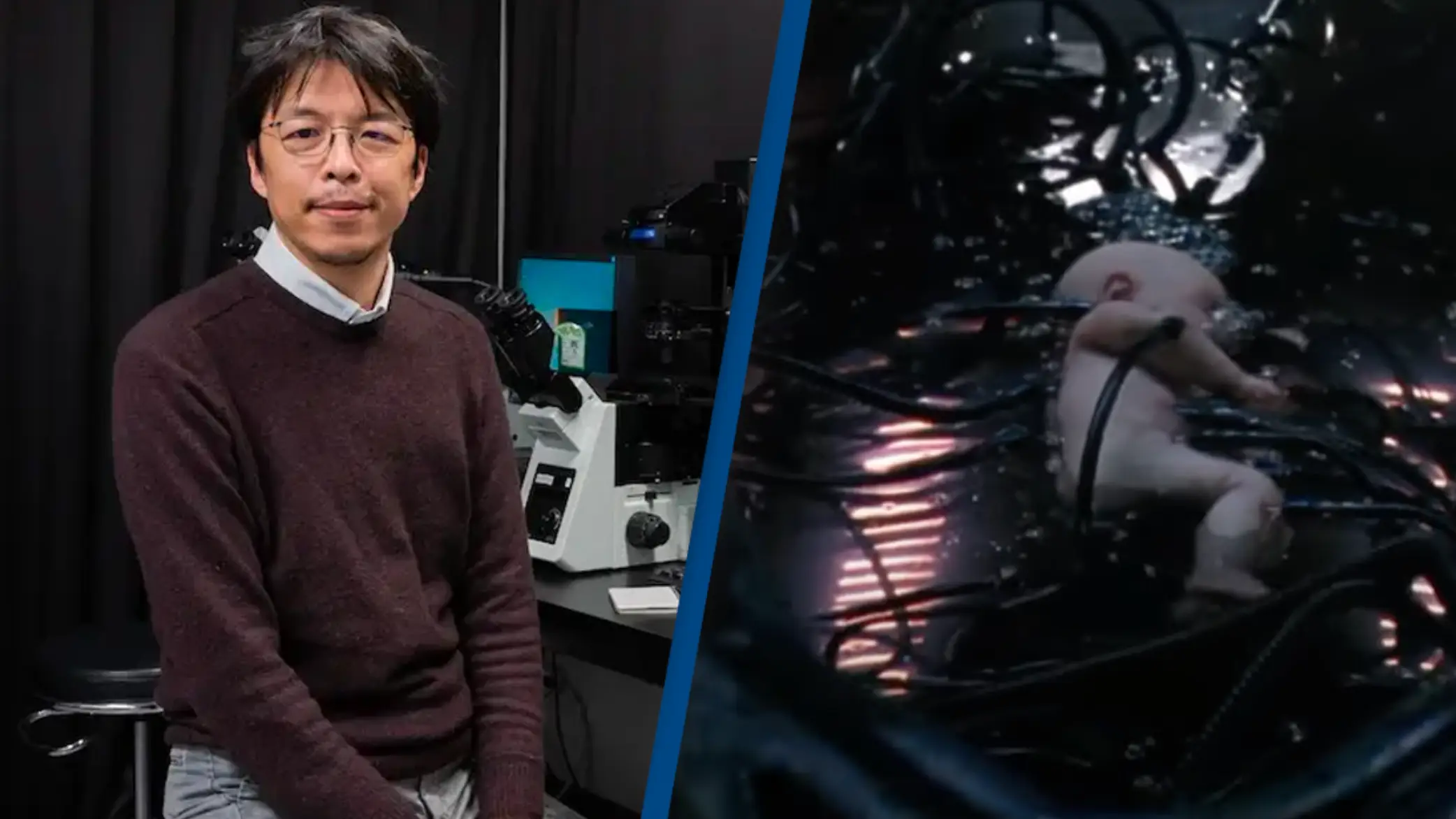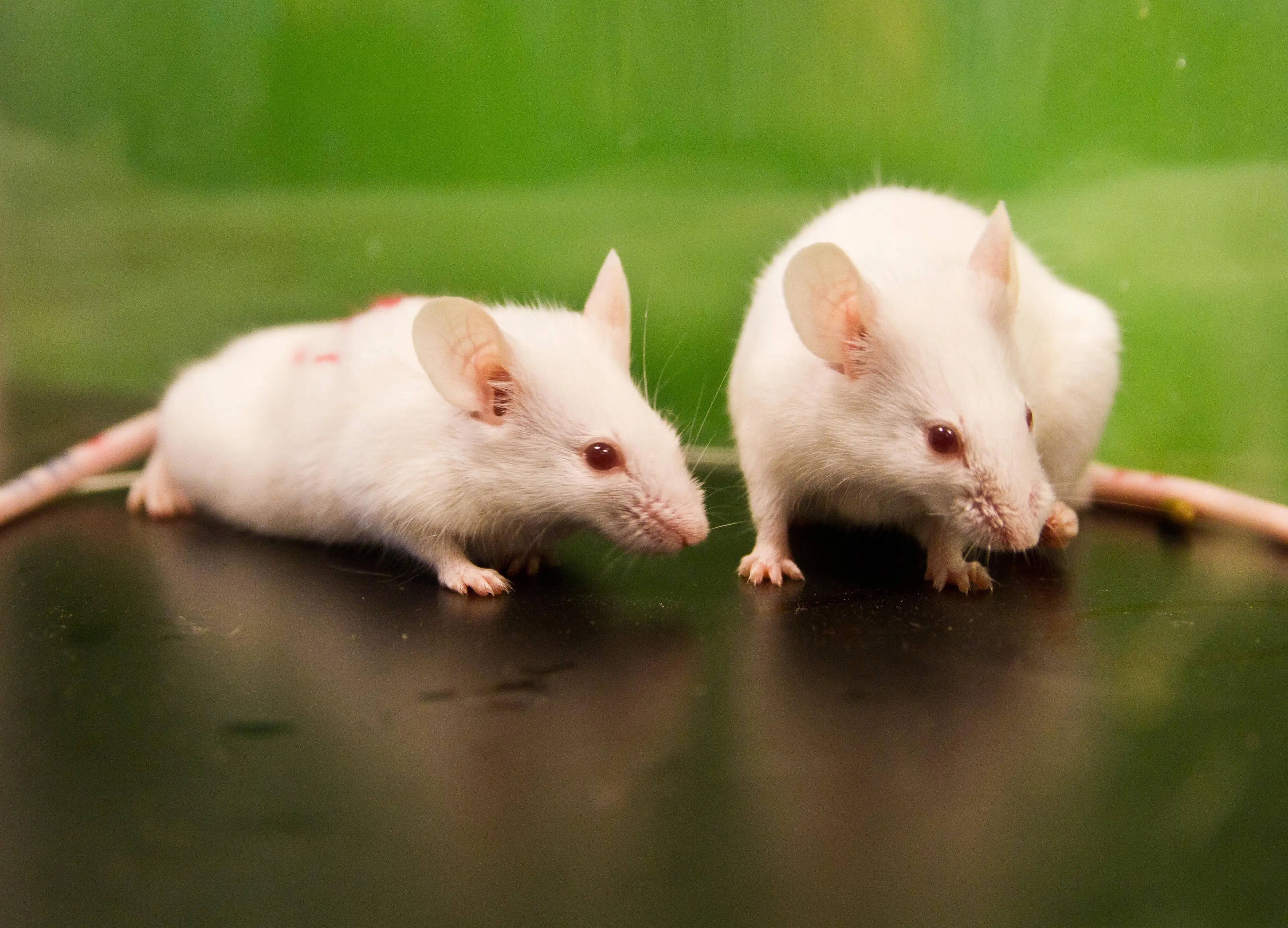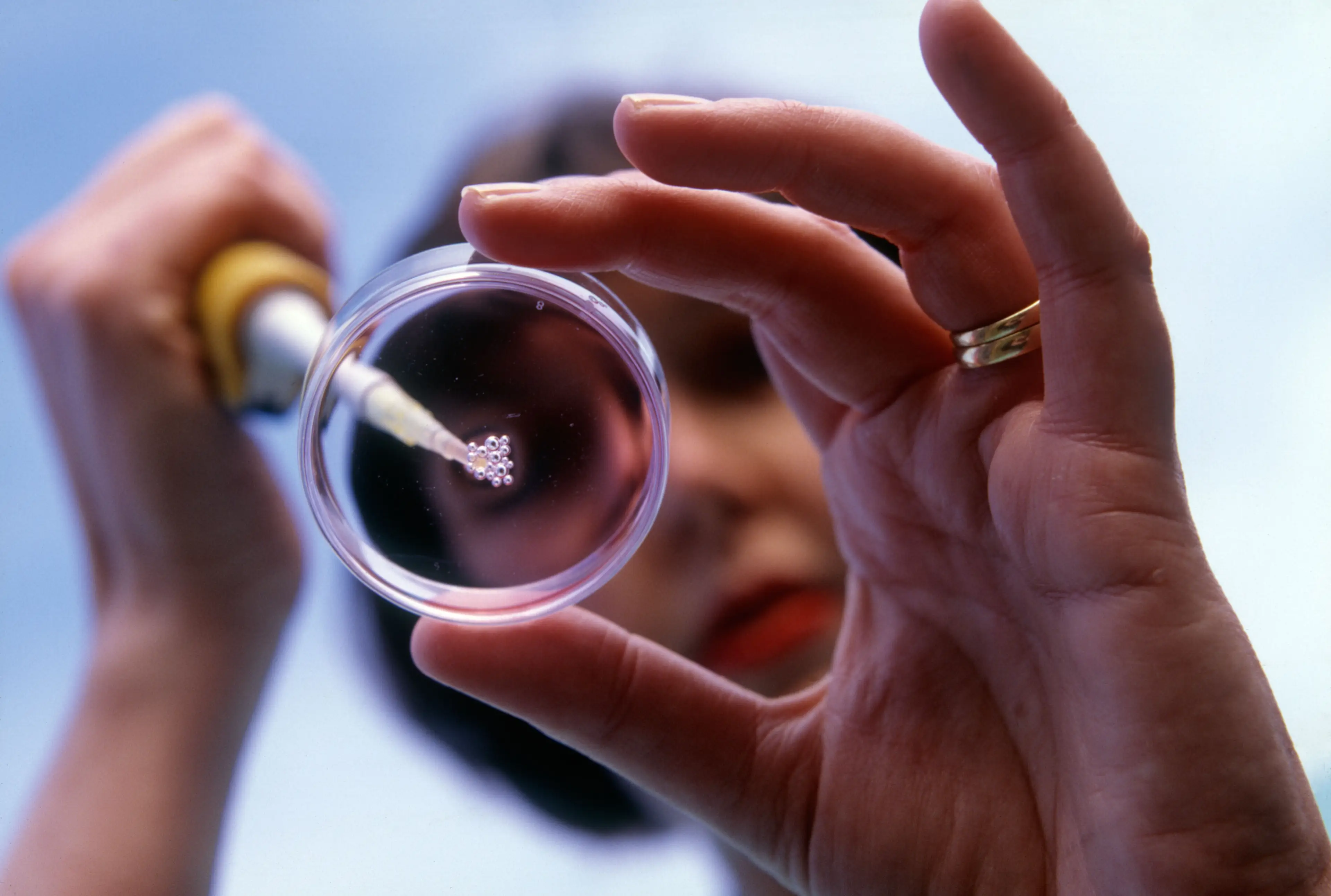
Japanese researchers believe they're on the cusp of developing lab-grown babies by as early as 2028.
According to a report published in Nature, Professor Katsuhiko Hayashi, a Japanese scientist at Kyushu University, has engineered a method of turning male mice skin cells into pluripotent stem cells, which can potentially develop into various types of cells or tissues.
Professor Hayashi and his team then grew these cells with a drug that converted the male rodent stem cells into female cells, which produced viable egg cells.
These eggs were then fertilized, which produced newborn male mice.
Advert

“This is the first case of making robust mammal oocytes from male cells,” Dr Hayashi said of the study.
And, given this recent breakthrough, he said he could emulate this process in humans in the near future, predicting it would take around five years.
As the scientists could produce egg-like cells from two male mice, it also raises the possibilities of same-sex couples and their fertility options.
“It’s a very clever strategy,” said Diana Laird, a stem cell and reproductive expert at the University of California, San Francisco, who was not involved in the research, as per New York Post.
“It’s an important step in both stem cell and reproductive biology.”

However, Dr Hayashi said scientists would need another 10 to 20 years to make the process safe for humans.
Jeanne Loring, a researcher at the Scripps Research Institute, said IVG in human reproduction was still a few years off.
She shared a similar sentiment with The New York Times in 2017, telling the outlet: "I wouldn’t be surprised if it was five years, and I wouldn’t be surprised if it was 25 years."
While Stanford University Professor Henry Greely told Freethink, he estimated that researchers would need another decade to produce lab-grown babies plus a decade or two to ensure safety.
But the ethical and legal considerations remain to be seen, as who knows if society is even ready for a concept like this.
One of the biggest concerns would be misusing this technology to produce lab-grown babies, such as plucking a hair from someone and using this DNA against their will.
And boom, suddenly, they've got more children than Nick Cannon can handle.
But alas, as the science around ectogenesis is still unfolding, we've still got a bit of time to figure it out.
Topics: News, Science, Technology
